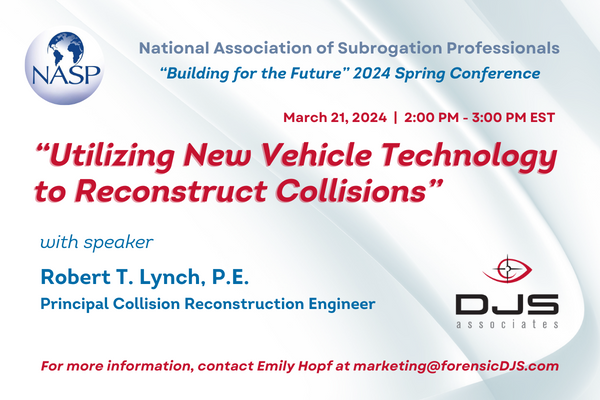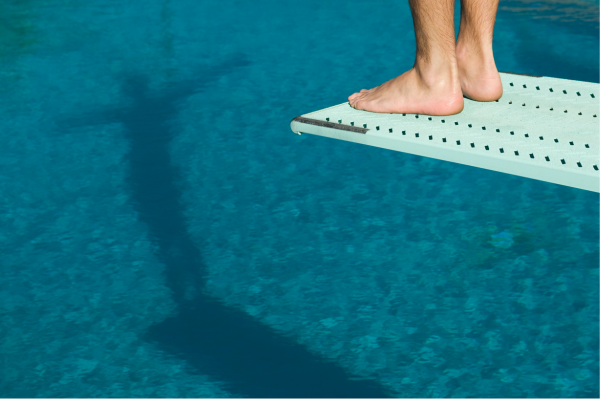NASP 2024 Spring Conference

Principal Collision Reconstruction Engineer with DJS Associates, Robert T. Lynch, P.E. will be presenting at the National Association of Subrogation Professionals (NASP) 2024 Spring Conference on March 21st. His topic, “Utilizing New Vehicle Technology to Reconstruct Collisions,” will discuss how to extract and utilize data from the latest safety feature advancements, such as adaptive cruise control and lane departure warning.
When functioning properly, the increasingly prevalent Advanced Driver Assistance Systems (ADAS) in new vehicles will alert drivers to potentially dangerous conditions. Some systems will even intervene by taking over partial control of the vehicle to help avoid or mitigate an impending collision. Safety features that rely on steering wheel, speed, and/or camera-based sensors can be used as additional sources of pre-crash data, expanding on what can be extracted from Event Data Recorders (EDR) and vehicle infotainment systems.
Addressing new vehicle technologies and innovative forensic applications, Bob’s presentation topic seamlessly fits the theme of NASP’s 2024 Spring Conference, which is “Building for the Future.” Please visit www.subrogation.org or contact Emily Hopf, Marketing Coordinator at marketing@forensicDJS.com for more information about the event.

